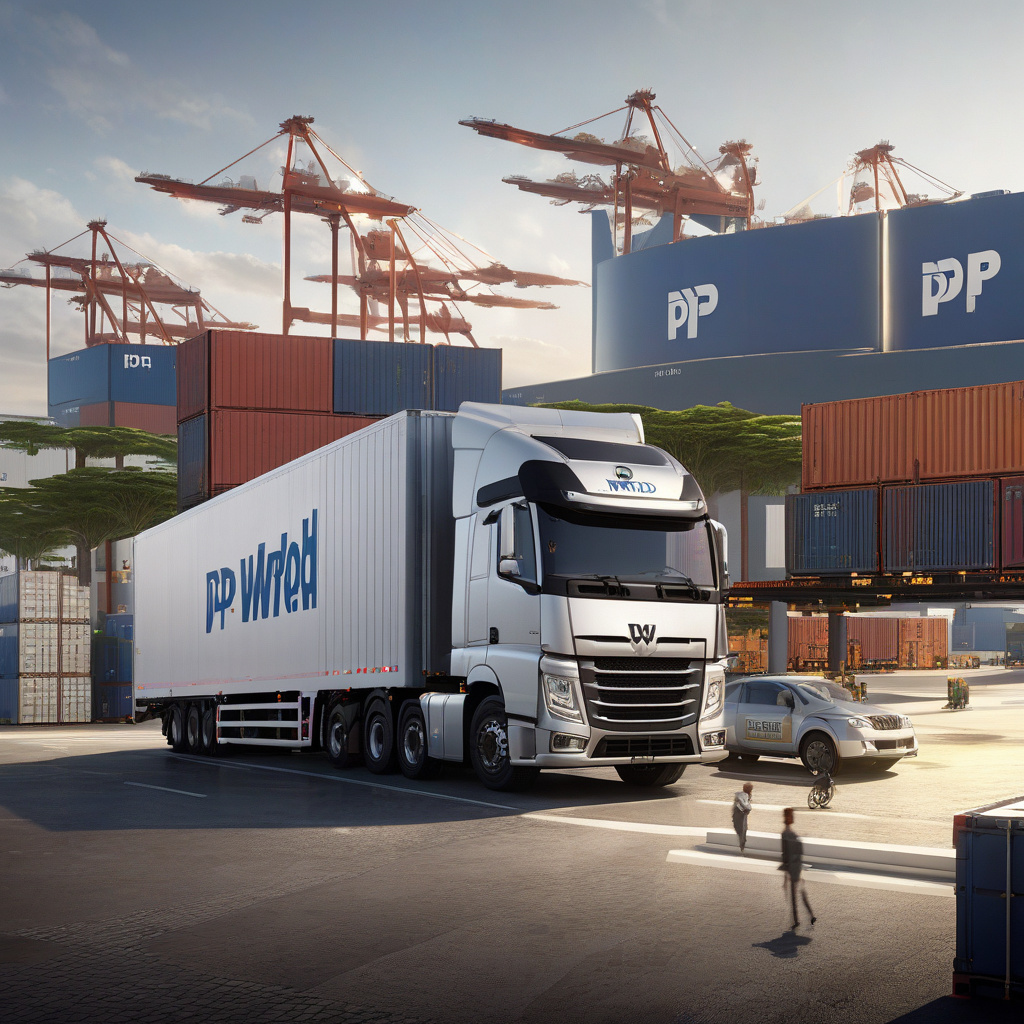DP World Launches UK’s First Low Carbon Truck Programme to Cut Road Freight Emissions
In a significant move towards reducing carbon emissions in the logistics sector, DP World has introduced the UK’s first Low Carbon Truck Programme (LCTP) at its London Gateway and Southampton logistics hubs. This pioneering initiative allows truck operators to access low carbon fuel, marking a vital step for the industry in the fight against climate change. With the backdrop of increasing pressure on businesses to prioritize sustainability, DP World’s programme is not just timely but essential.
The logistics and transportation sector is one of the largest contributors to greenhouse gas emissions. According to the Department for Transport, road freight alone accounted for approximately 16% of the UK’s total emissions in 2020. With over 4,000 truck visits per day at its two UK ports, DP World recognizes its responsibility to lead the charge in implementing greener practices. The LCTP aims to support at least 500 trucks in transitioning to low carbon fuel, showcasing a commitment to sustainability that other companies may soon emulate.
The benefits of low carbon fuels are manifold. These fuels can significantly reduce the carbon footprint of transportation operations, decrease reliance on fossil fuels, and contribute to a cleaner environment. By offering truck operators access to low carbon alternatives, DP World is setting a precedent in the logistics industry. This initiative not only aligns with the UK government’s commitment to achieving net-zero emissions by 2050 but also caters to the growing consumer demand for environmentally responsible practices.
One of the key aspects of the LCTP is its potential for scalability. As more truck operators adopt low carbon fuels, the overall emissions from freight transportation are expected to decline. This programme acts as an attractive incentive for businesses that are committed to reducing their carbon footprints but may be hesitant due to concerns about cost and availability of low carbon fuels. By providing infrastructure and support, DP World is effectively lowering the barriers to entry for sustainable transportation options.
Moreover, this initiative positions DP World as a leader in the logistics sector. By taking proactive steps towards sustainability, the company not only enhances its reputation but also strengthens relationships with customers who are increasingly prioritizing sustainability in their supply chain decisions. Businesses looking to partner with environmentally conscious organizations are likely to view DP World’s LCTP favorably.
In addition to environmental benefits, the LCTP holds economic potential for the logistics sector. As the demand for low carbon fuels rises, new market opportunities will likely emerge. Businesses that adapt to these changes can gain a competitive edge. Furthermore, by investing in low carbon technologies, DP World is fostering innovation within the sector, which could lead to job creation and economic growth.
The launch of the Low Carbon Truck Programme is also a clear signal to government and industry stakeholders about the importance of collaborative efforts in achieving sustainability goals. DP World’s initiative illustrates how private sector leadership can drive change and inspire policy reform. It is a call to action for other logistics companies to assess their practices and consider similar programs that can contribute to the collective effort of reducing carbon emissions.
The success of the LCTP will rely heavily on collaboration across the supply chain. Partnerships with fuel suppliers, truck manufacturers, and logistics companies will be crucial to ensure a seamless transition to low carbon alternatives. Additionally, ongoing research and development will be necessary to further improve the efficiency and availability of low carbon fuels.
As the UK moves towards a greener future, the launch of DP World’s Low Carbon Truck Programme is a notable milestone. It not only addresses the pressing issue of road freight emissions but also sets a benchmark for other companies to follow. By leading the way in sustainability, DP World is proving that economic growth and environmental responsibility can go hand in hand.
In conclusion, the introduction of the Low Carbon Truck Programme is a transformative step for the logistics industry in the UK. It highlights the crucial role that businesses must play in advancing sustainability and reducing emissions. As the programme unfolds, it will be interesting to observe its impact on the industry and the potential ripple effects it may have on global logistics practices. With continued commitment and innovation, the future of freight transportation can indeed be low carbon.
sustainability, logistics, lowcarbon, DPWorld, emissions
